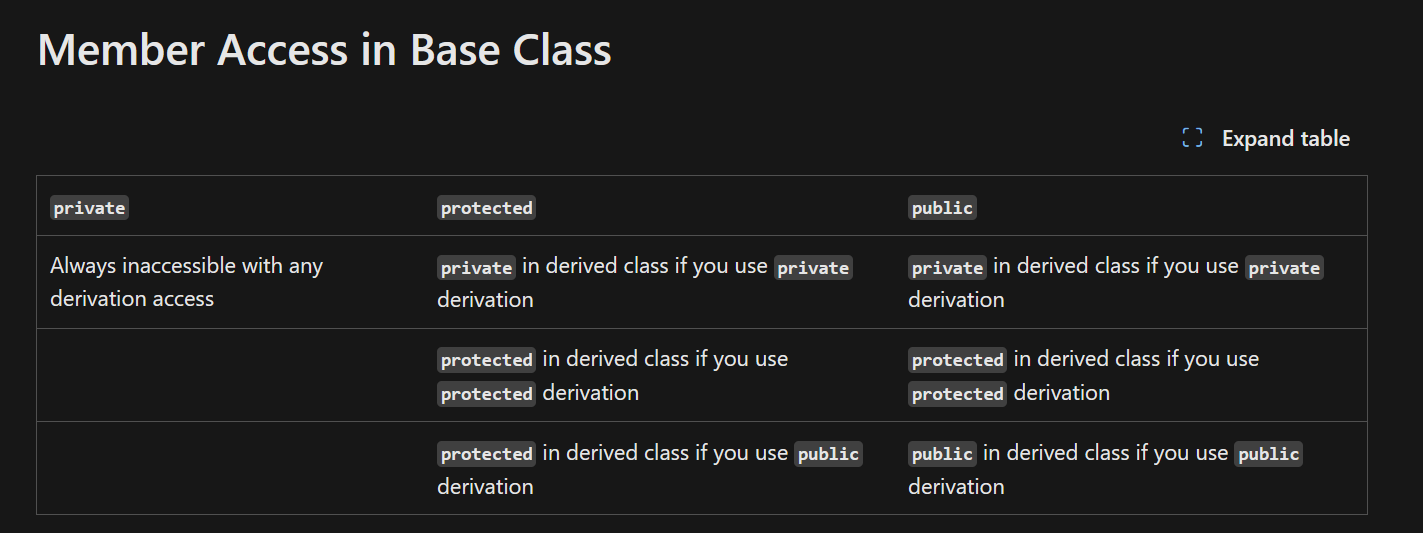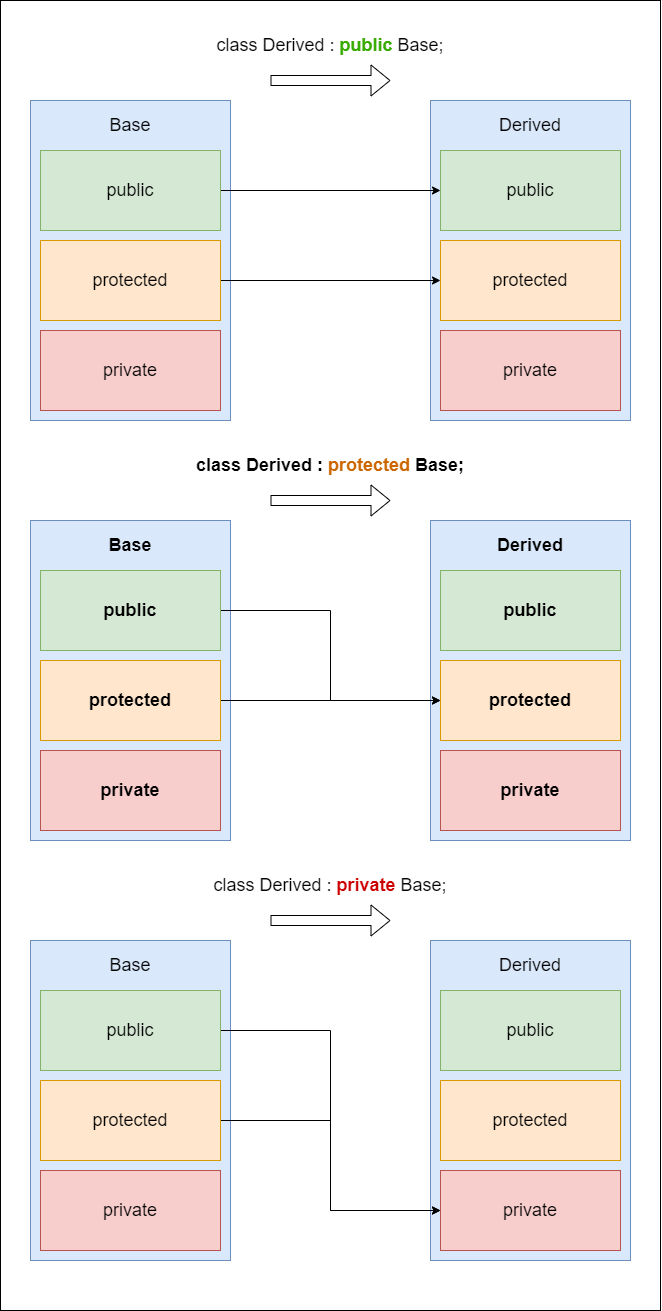This blog was last modified 470 days before.
Limit Class Member Access
We use three keywords: public, protected and private to control the external and derived class access to the member of a certain class.
Strongly recommend to first checkout Microsoft C++ Docs: Class Access Control, which will describe how to use these three access specifiers.
This post is a conclusion to the docs above.
For Base Class
public means: anyone from outside this class has the right to access these members.
protected and private means: only this class itself or friend can access these members.
For Derived Class
Checkout Microsoft C++ Docs - Derived Class Access Control
The table in that page introduce how access specifier works when you make derived class from a base class.

If we use a more direct diagram to describe this relation, we will get the result below:

Static Members
The rules introduced above only apply to non-static member in base class. That means: public static members will still accessible from derived class even if you use private to declare the base class.
#include <iostream>
using std::cout, std::endl;
class BaseClass
{
public:
static int count;
int nonStaticCount;
};
// Here BaseClass is declared with private specifier in default, so the private could be omitted
// same to: class DerivedClass : BaseClass
class DerivedClass : private BaseClass
{
void someMemberFunction()
{
this->count;
}
};
class DerivedClass2 : private DerivedClass
{
void someMemberFunction();
};
// ------------------------------------------------------
void DerivedClass::someMemberFunction()
{
cout << ::BaseClass::count << endl; // OK
this->count; // OK
}
void DerivedClass2::someMemberFunction()
{
cout << ::BaseClass::count << endl; // OK
this->count; // Inaccessible
}
Now we fount no matter in what derived class, the express ::BaseClass::count is valid. You can think we directly access this public static member by using scope operator, which is the same thing we do if we want to access this public member outside that class.
However this->count works in member function of DerivedClass, but not works in DerivedClass2.
Two explanations for me. First one is from Microsoft docs, and another one is from myself lol.
However, in C++ class, member functions and friend classes/functions has the right to convert a class type to its direct base class even if it's declared in private or protected.
For me, I would like to directly considered that when we access static member in base classes through instance/pointer/ref, the static member could be considered still follow the rules of non-static members.
Virtual Functions
Still based on the Microsoft docs, which gave us the following example:
// example given in Microsoft docs
class VFuncBase
{
public:
virtual int GetState() { return _state; }
protected:
int _state;
};
class VFuncDerived : public VFuncBase
{
private:
int GetState() { return _state; }
};
int main()
{
VFuncDerived vfd; // Object of derived type.
VFuncBase *pvfb = &vfd; // Pointer to base type.
VFuncDerived *pvfd = &vfd; // Pointer to derived type.
int State;
State = pvfb->GetState(); // GetState is public.
State = pvfd->GetState(); // C2248 error expected; GetState is private;
}
The conclusion is:
Accessiblity of a virtual function of a class is decide by the type of the instance that you call it.
That means if the virtual function is public in the class, then the instance/pointer/ref with this class type would have public access to this virtual function. Same to protect and private
No comment